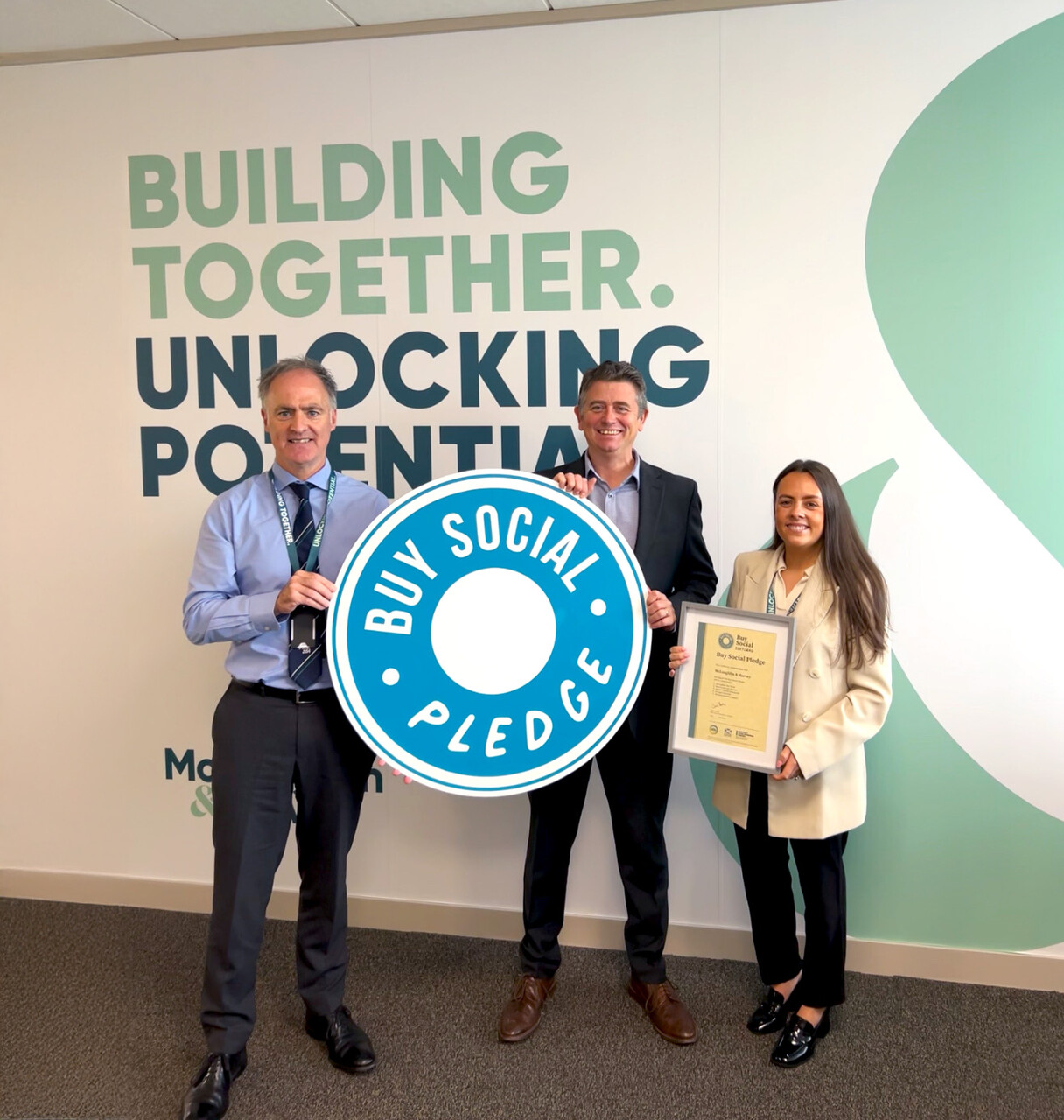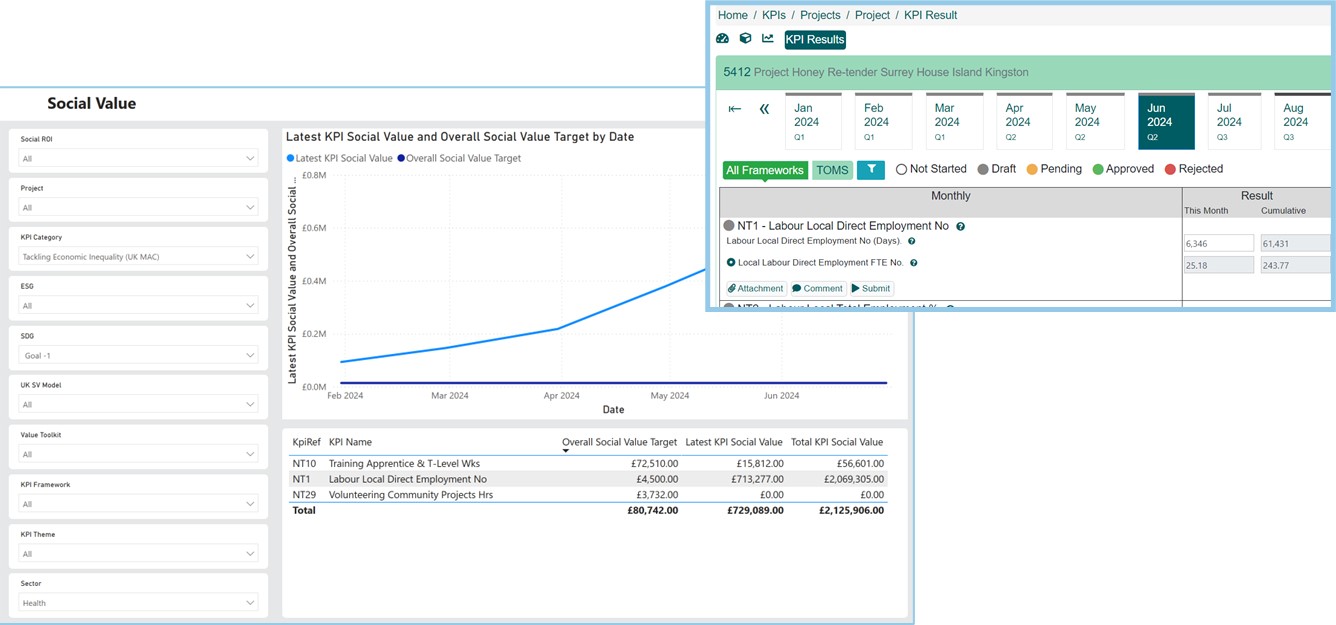WHAT DOES THE PROCUREMENT ACT MEAN FOR SOCIAL VALUE MEASUREMENT?
Social value and the measurement of its impact on the communities in which we work is a central part of our commitment to being a responsible business. Effective reporting on this impact is crucial to the management of both public and private sector projects.
At McLaughlin & Harvey, there is no silver bullet for approaching a social value compliance checklist. Our work and our community commitments span each corner of the UK and as such are subject to different requirements across countries, commissioning authorities and individual frameworks.
Social value is not a new phenomenon; we’ve been building our approach to social value measurement and reporting for some time. As each UK region continues to define its requirements from social value in public sector procurement, we’ve developed our own approach to measuring the real impact of our projects.

IN-HOUSE EXPERTISE
Our dedicated social value team brings deep expertise in reporting requirements across multiple frameworks and regional compliance variations. We’ve developed a bespoke measurement framework that aligns with a range of compliance standards, rather than relying on a one-size-fits-all approach.
Our in-house KPI monitoring, measurement and reporting system allows us to navigate a complex and changing social value reporting landscape. We can seamlessly develop reporting dashboards that allow us to tailor our reporting to over 250 available data points subject to the needs of a project. This is something we use across both public and private sector contracts to ensure consistency of reporting.
TRANSPARENCY AND ACCOUNTABILITY IN SOCIAL VALUE
Our clients can feel confident in the impact of our social value commitments on their communities with a reporting framework that holds us accountable and offers full transparency.
Flexible in its metrics, the system delivers real time, data-driven insights to specific project teams enabling early identification of potential risks, demonstrating impact and allowing us to continually improve outcomes for local communities.



DEVELOPING MEANINGFUL IMPACT
With real-time, transparent reporting and a highly skilled team, we can direct our social value efforts to where they’re needed most in the communities we serve. By tailoring our measurement KPIs to the unique needs of each project, clients gain clear insight into where we’re making the greatest impact.
We also coordinate efforts across local projects and contractors to deliver the best possible outcomes for each community and region.
FAQs
What social value KPIs are most important for construction projects under the new Procurement Act?
The most critical social value KPIs for construction projects under the Procurement Act 2023 incorporate:
- Employment and skills development with metrics around job creation, apprenticeships and training opportunities, particularly for disadvantaged groups.
- Environmental sustainability including carbon reduction, biodiversity net gain, and waste management metrics.
- Community engagement involves measurable community benefits and local economic impact.
- Supply chain diversity measured via SME and VCSE engagement percentages and spend.
- Economic resilience illustrated by local employment and procurement statistics
How can construction subcontractors meet social value requirements in your supply chain?
Construction contractors can effectively meet social value requirements by taking a comprehensive approach that starts with understanding key Procurement Act provisions. Familiarity with MAT evaluation criteria is essential, as these directly impact tender scoring and contract awards. Appropriate measurement systems allow subcontractors to track and report their social value contributions in a format compatible with supply chain reporting requirements.
Local impact should be a priority with a focus on creating employment opportunities, developing skills in communities and engaging meaningfully with local stakeholders. Participation in social value programmes across multiple projects helps maximise community benefits while also creating more delivery efficiencies. Maintaining thorough documentation and evidence of all social value activity ensures compliances can be verified and reported.
What is the Procurement Act 2023 and how does it affect social value measurement in construction?
The Procurement Act 2023 represents a significant shift in public sector procurement. It mandates a minimum 10% social value weighting for UK public contracts. It also transitions evaluation criteria from MEAT (Most Economically Advantageous Tender) to MAT (Most Advantageous Tender).
This new approach emphasises social, environmental and economic benefits, and not just cost considerations. For construction firms, this means demonstrating quantifiable social value outcomes is now essential for winning public sector contracts.
What types of social value activities can construction companies implement during project delivery?
Construction companies can implement diverse social value activities throughout the project lifecycle. Employment and skills development includes creating job opportunities for disadvantaged groups, offering apprenticeships, and providing training programmes that develop local skills. Community engagement and local procurement involves using local suppliers and labour. Companies can volunteer in communities, support local causes, and create partnerships with small businesses and charitable organisations.
Environmental stewardship includes reducing carbon emissions, using sustainable materials, and minimising construction disruption. Long-term community benefits focus on creating affordable housing, improving community spaces, and designing accessible infrastructure that meets changing community needs.
